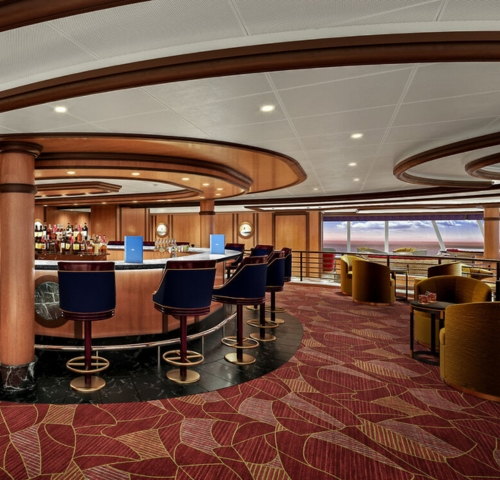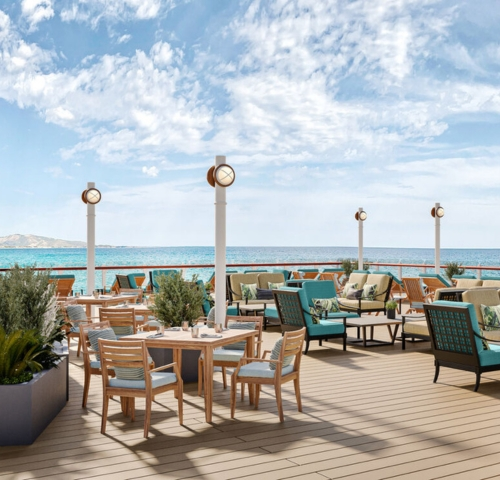The latest from Cunard: Queen Elizabeth's refit
Cruise Circle
This week we’ve some interesting bits and pieces from Cunard; a refit of Queen Elizabeth and the results of a neuroscience study they commissioned.
(A re)fit for a Queen
Cunard’s Queen Elizabeth is sailing into an exciting new chapter for 2025, with the cruise line revealing the ship will be reimagined for her new Caribbean and Alaskan adventures next year. The glamorous ‘glow up’ will refresh much-loved venues including...
The Queen's Room
Home to everything from fast-paced Zumba to glamorous Gala evenings and indulgent afternoon teas, the Queens Room has always been the heart of the ship. Colourful art-deco details will meet contemporary craftsmanship to refresh the beloved ballroom.
The Commodore Club
A favourite for its fabulous sea views, this bar is found on the bow and inspired by the Cunard Commodores who have captained the fleet. The refit gives it a vibrant design uplift with new even comfier seating.
And there's plenty of other new touches too...
Signature interiors and exteriors such as the Panorama Pool Club, Garden Lounge and The Pavilion will all be revitalised too, from functional changes (like USB-ports added in staterooms) to upgraded décor in the exclusive Grills Suites, Lounge and Terrace area.
Enjoy cruising on the refreshed Queen Elizabeth yourself
Queen Elizabeth will become a familiar face along the shores of the Caribbean and North America. You can experience the ship in all her glory in the inaugural Alaska season from Seattle or the debut Caribbean programme from Miami.
See the Alaska & Caribbean sailings for 2025
What does a Cunard cruise do to the brain?
They conducted a study to find out

The developing field of Neuroscience studies the brain's reaction to various stimuli. Being curious folks, and confident there would be positive effects, Cunard carried out a neuroscience study on their flagship, Queen Mary 2, during an iconic transatlantic crossing.
And the results?... just five days at sea improved mental and emotional wellbeing, with stress levels reducing by 35%. The research found other positive effects too:
Memory - A 29% improvement in word recall (indicating enhanced short-term memory)
Problem-solving - 125% improvement on complex logical tasks
Attention - 14% improvement in focus
Relaxation - Self-reported relaxation rose by 158%








